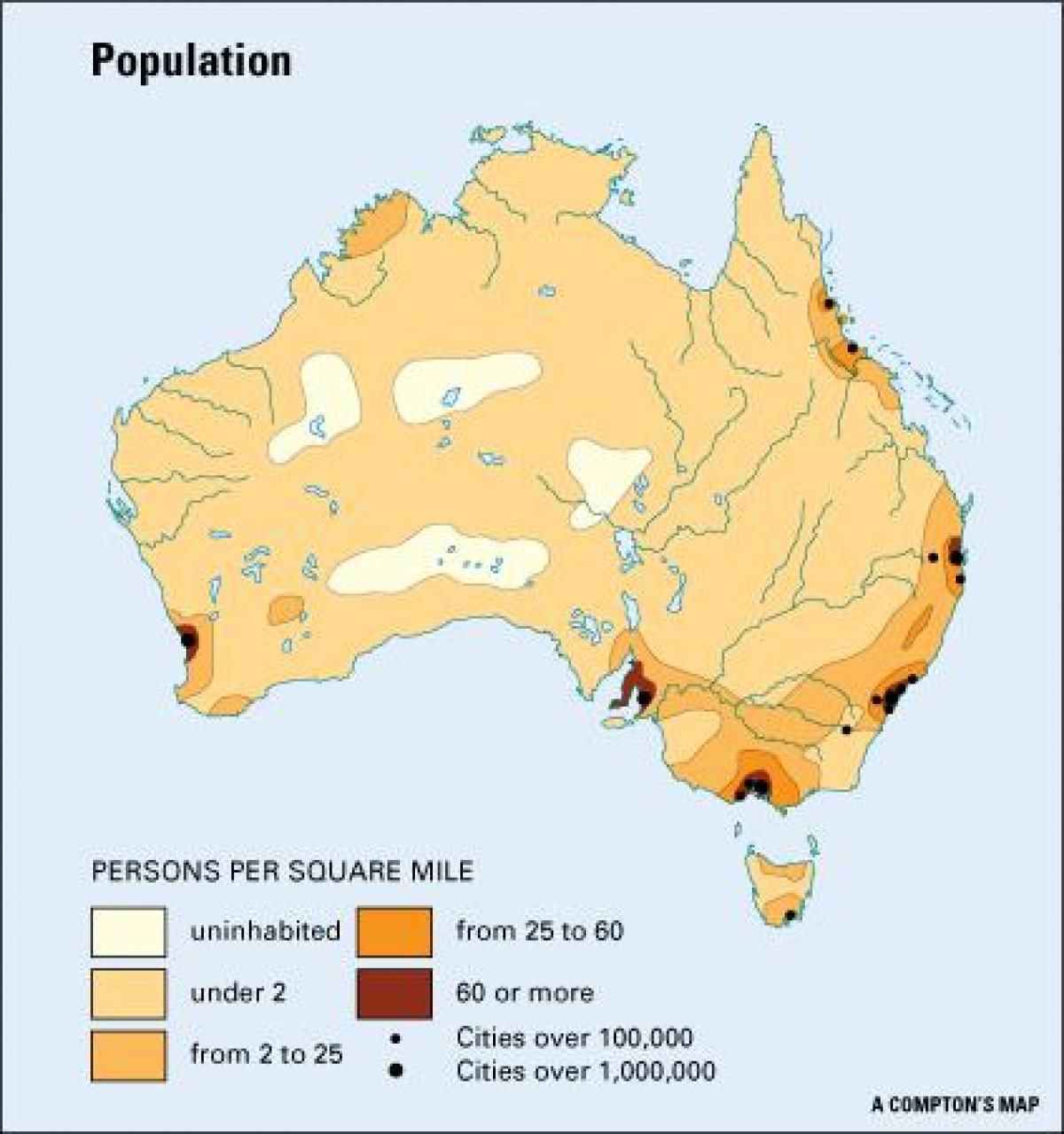
Population density map Australia Population density map of Australia (Australia and New
The population of Australia is estimated to be 26,956,800 as of 8 January 2024. [1] Australia is the 55th [2] most populous country in the world and the most populous Oceanian country.

Australian population map showing states and major cities Map, Infographic, Australia map
Population, total Australia Population, total - Australia ( 1 ) United Nations Population Division. World Population Prospects: 2022 Revision. ( 2 ) Census reports and other statistical publications from national statistical offices, ( 3 ) Eurostat: Demographic Statistics, ( 4 ) United Nations Statistical Division.
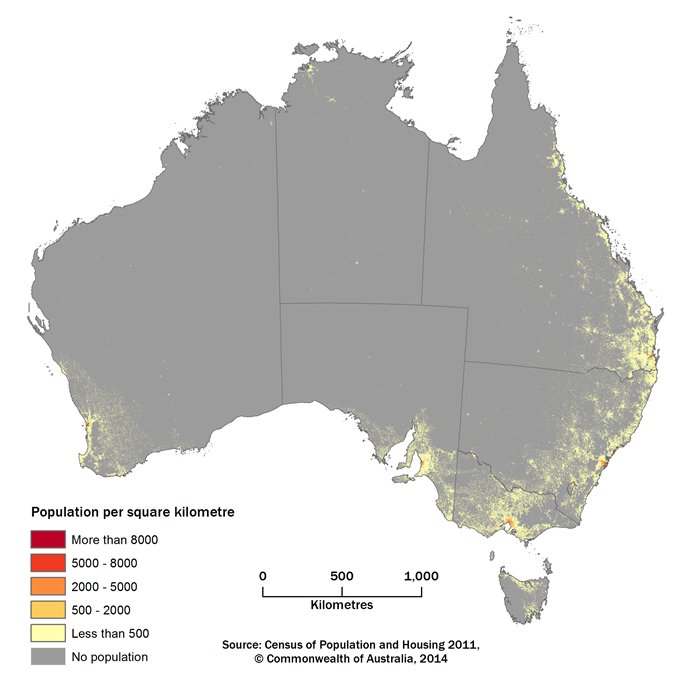
Australian Population Grid a new view of population density .id blog
The Estimated Resident Population (ERP) of Australia was 25.7 million people at 30 June 2021, around 34,300 people larger than at 31 March 2021. Population growth for the year ending 30 June 2021 was around 0.2 per cent (46,000 people), down from 1.3 per cent for the year ending 30 June 2020. This is the lowest recorded financial year growth since 1916-17 when growth was 0.0 per cent.
Map of population density in Australia r/MapPorn
Australia's Population Map 2023 In our latest population map we bring to you a visualised overview of Australia's Population and Generational Profile, to help you understand the demographics of this great country. Insights you'll love exploring: Australia's population growth Median age Employment Birthrate and life expectancy
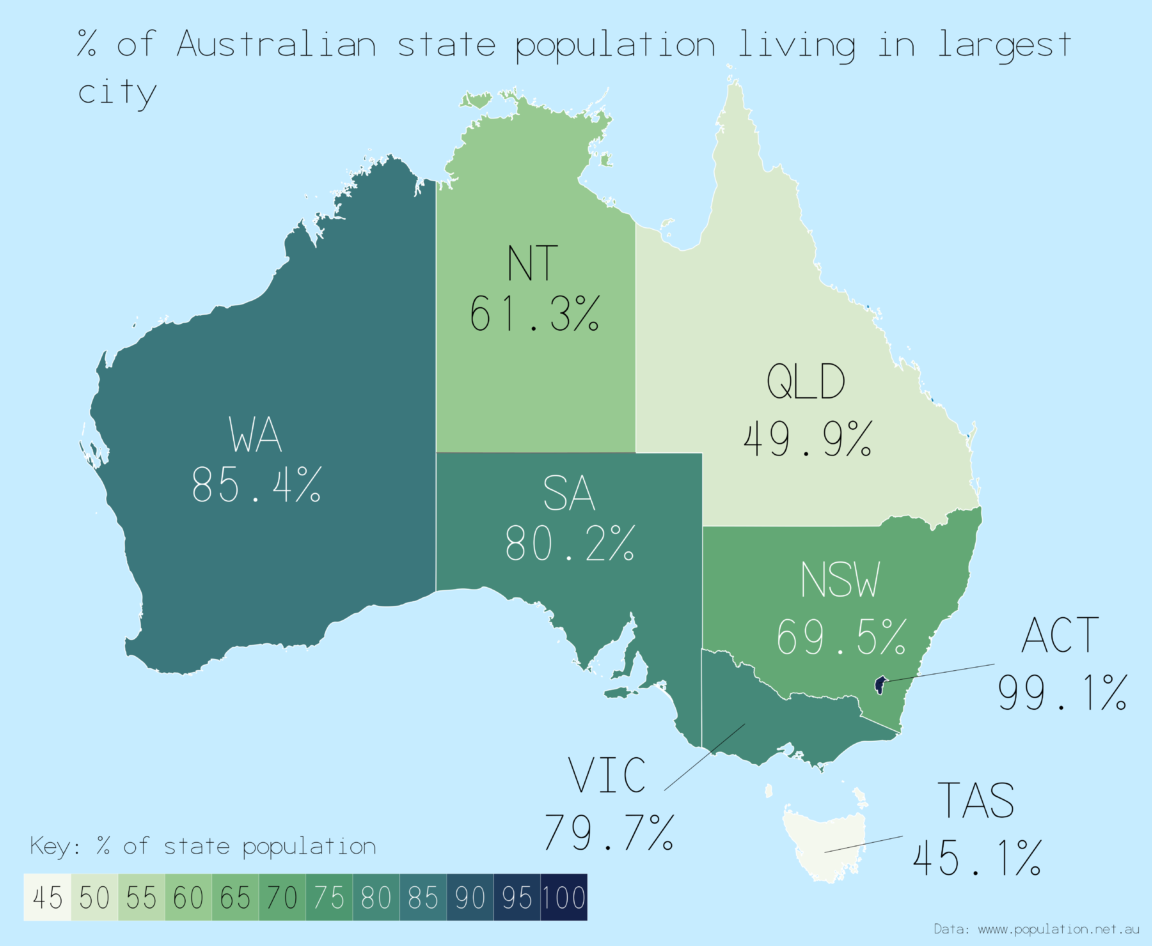
data visualization Percentage of Each Australian State's Population Living in its Most
Australia's population is about 25.5 million as of 2020 and is projected to grow to 42.68 million people by 2099. Australia's population growth rate is 1.18%, adding about 296,000 people to the population over 2019's population.
Population density of Australian states and territories (2019) AussieMaps
Chart and table of Australia population from 1950 to 2024. United Nations projections are also included through the year 2100. The current population of Australia in 2024 is 26,699,482, a 0.98% increase from 2023.; The population of Australia in 2023 was 26,439,111, a 1% increase from 2022.; The population of Australia in 2022 was 26,177,413, a 0.99% increase from 2021.
Australian Population Density 2017 [6776X4732] MapPorn
Australia's population of nearly 27 million [10] is highly urbanised and heavily concentrated on the eastern seaboard. [30] Canberra is the nation's capital, while its most populous cities are Sydney, Melbourne, Brisbane, Perth and Adelaide. [31]

[Map of] Australia, population, grouped and graded, census 1921; Cameron, T. W; eHive
The Australia population density map shows the number of inhabitants in relation to Australia size. This demographic map of Australia will allow you to know demography and structure of the population of Australia in Oceania. The Australia density map is downloadable in PDF, printable and free.
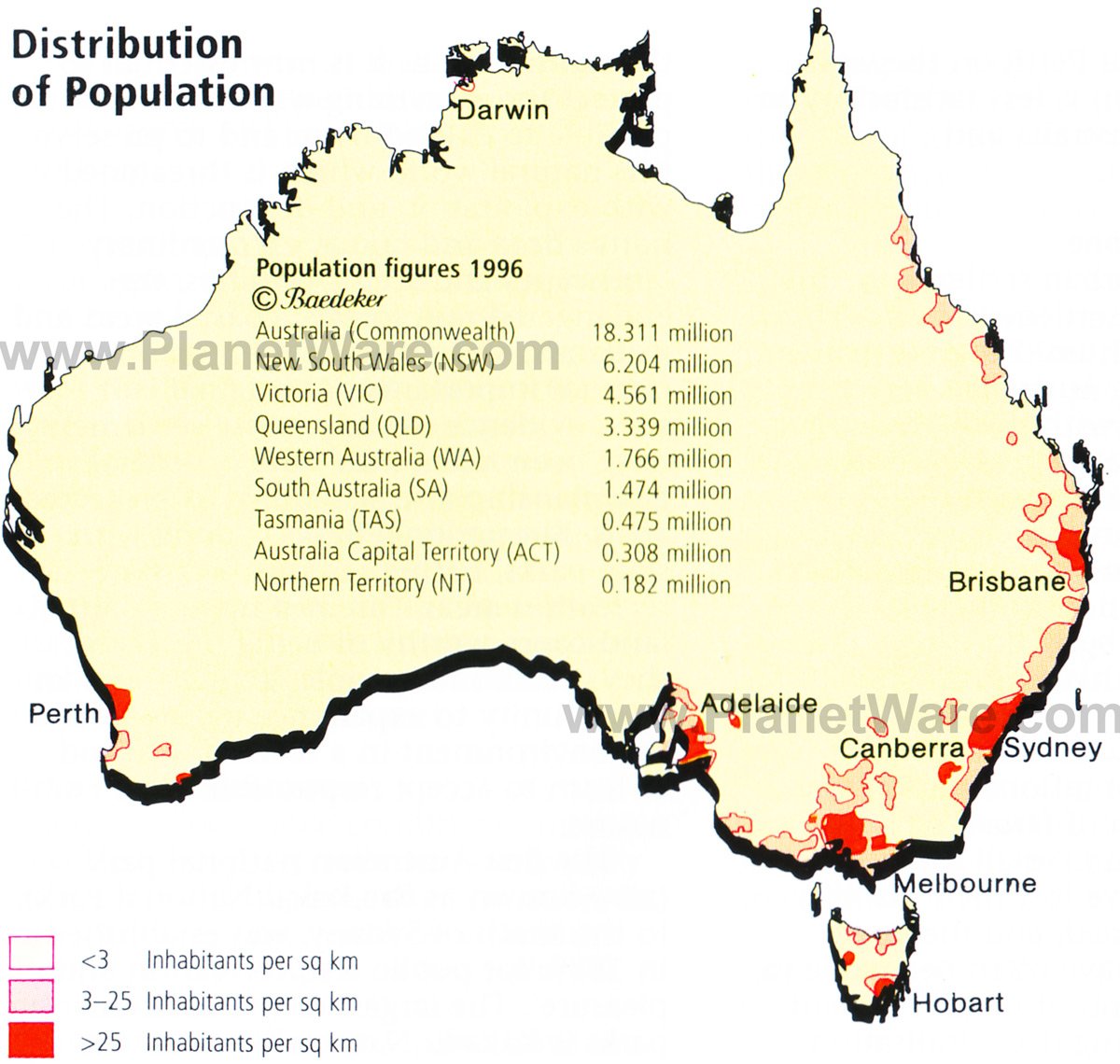
Map of Australia States and Territories
Political Map of Australia Australia (officially, the Commonwealth of Australia) is divided into 6 states and 2 major mainland territories. In alphabetical order, the states are: New South Wales, Queensland, South Australia, Tasmania, Victoria and Western Australia.
Population density by electoral division in Australia MapPorn
flag of Australia Audio File: Anthem of Australia ( see article) See all media Category: Geography & Travel Head Of Government: Prime Minister: Anthony Albanese Capital: Canberra Population: (2023 est.) 26,231,000 Currency Exchange Rate: 1 USD equals 1.562 Australian dollar
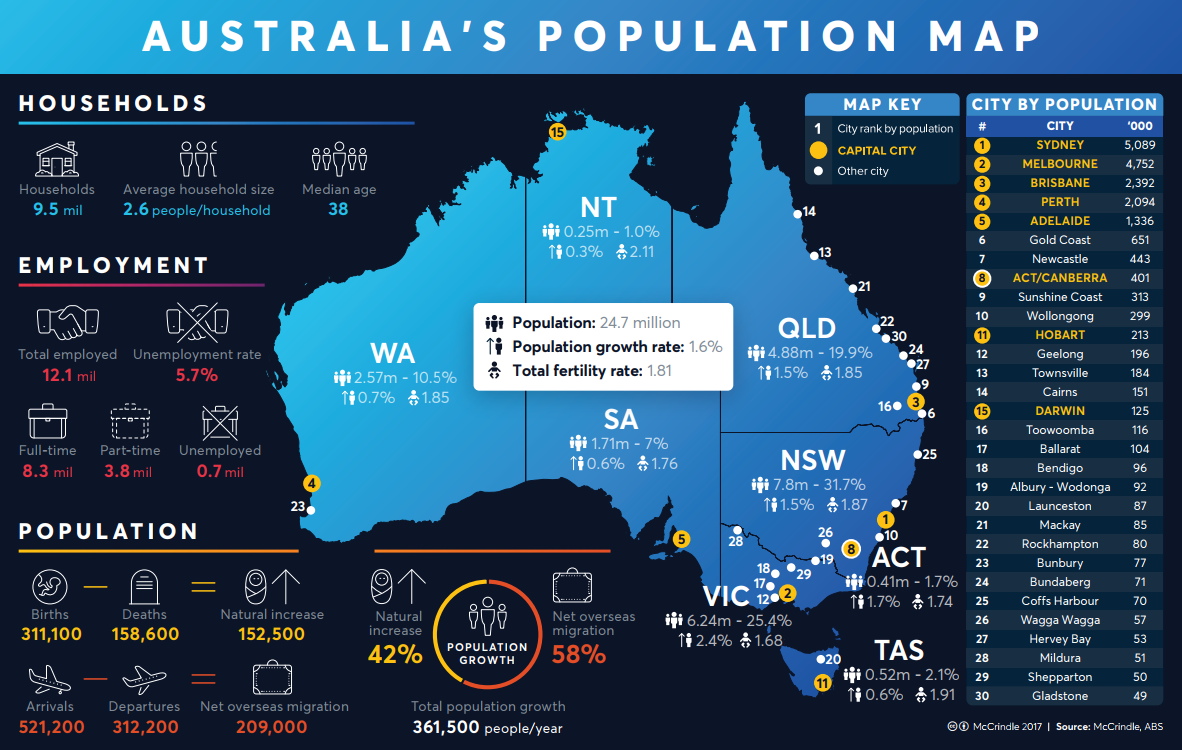
The Rise and Rise of Australia’s Population McCrindle
Interactive maps illustrating 2016 Census birthplace data for Melbourne, Sydney and regions throughout Australia. About this site For details about the Mapping Australia's Population project, go to About this site .
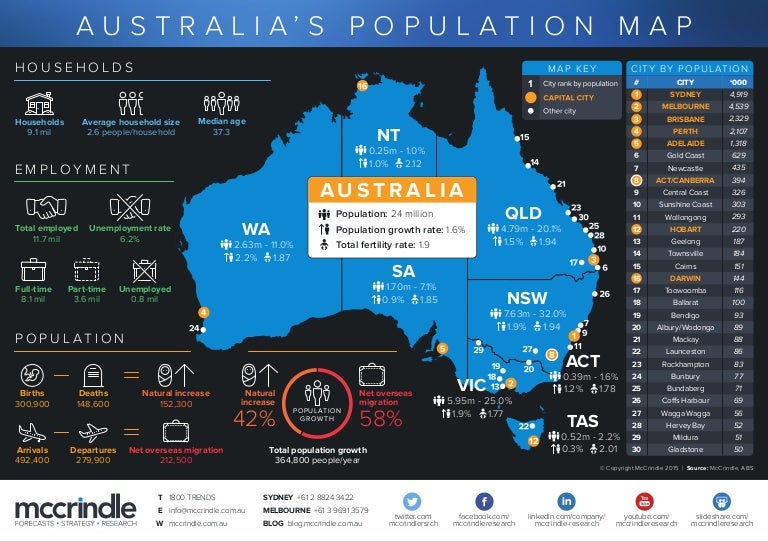
Australia populationmapgenerationalprofile2015 infographicmccrin…
Australia's population was 26,638,544 people at 30 June 2023. The quarterly growth was 146,800 people (0.6%). The annual growth was 624,100 people (2.4%). Annual natural increase was 106,100 and net overseas migration was 518,100. Reference period June 2023 15 December 2023 Overseas Migration
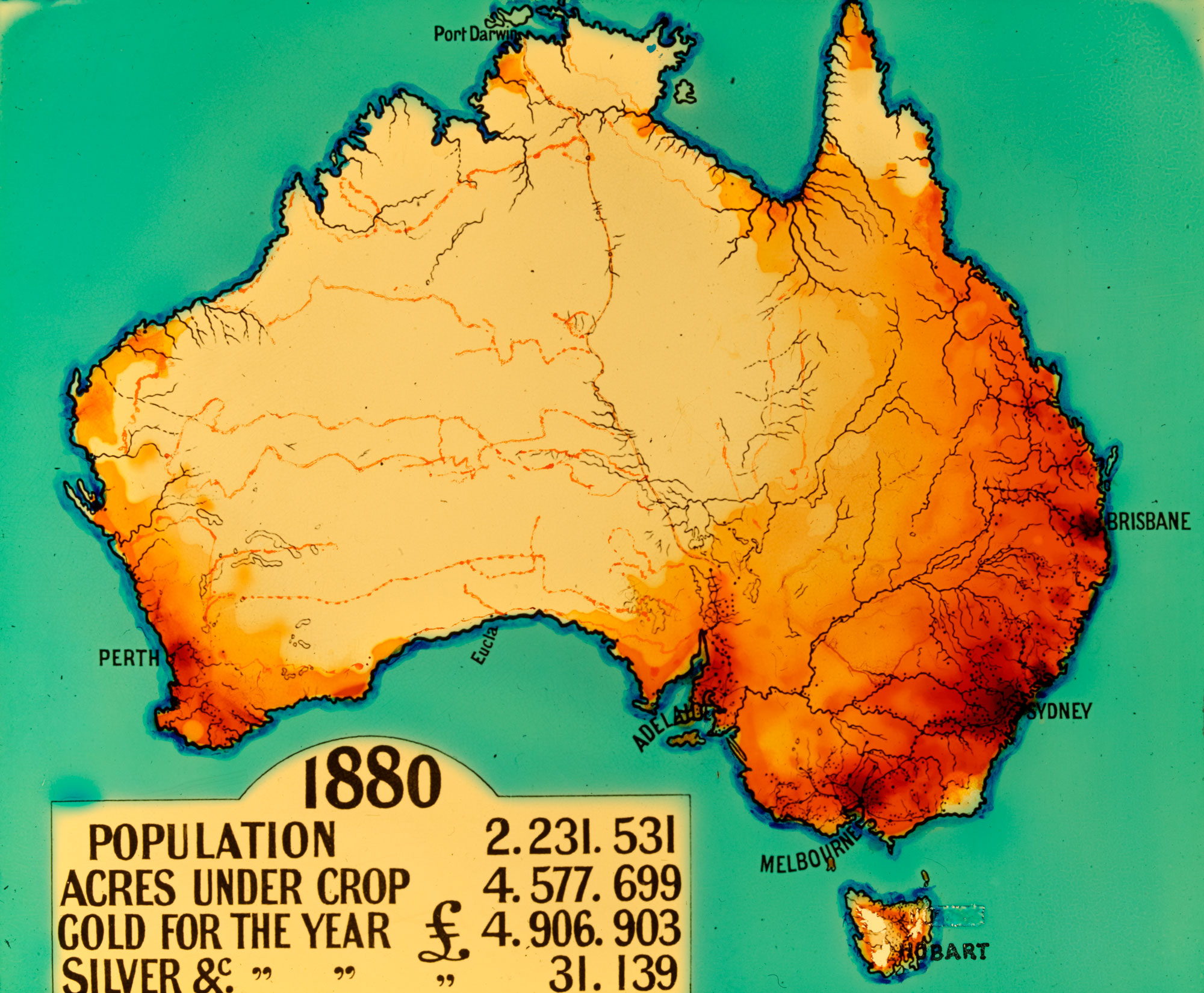
Making a nation Defining Moments, 17501901 Australia’s Defining Moments Digital Classroom
Census interactive maps Explore data on Australia's population movement and journey to work Population movement in Australia Internal migration data from the Census allows us to understand the movements of our population across the whole country, and over time.
Late 1920s Population Density Map of Australia [5000 × 4020] r/oldmaps
A set of interactive maps examining the projected (at 30 June 2020) geographic distribution, by Statistical Areas Level 2 (SA2), of people who are aged: 60 years and older, 70 years and older, and 80 years and older.
Population Density map of Australia. r/MapPorn
Centre for Population analysis of the National, state and territory population publication from the Australian Bureau of Statistics (ABS) Reference period: January 2022 - March 2022 26 September 2022. The Estimated Resident Population (ERP) of Australia grew by 0.5 per cent in the March 2022 quarter, to be 0.9 per cent higher than a year earlier.
Australia's Population Density [1297x1071] r/MapPorn
Key statistics The 2021 Census counted 25,422,788 people in Australia (excludes overseas visitors), an increase of 8.6 per cent since the 2016 Census. 49.3 per cent of the population were male with a median age of 37 years old. 50.7 per cent of the population were female with the median age of 39 years old. Image Description Source: Age ( AGEP)